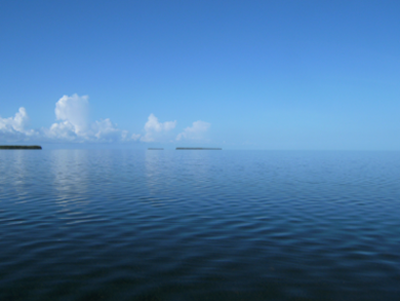Ecosystem Assessment and Modeling (EAM)

The Ecosystem Assessment, and Modeling (EAM) research group assesses, evaluates, and predicts the holistic, integrated ecosystem status using a broad range of scientific tools (e.g. observations, empirical analyses, end-to-end ecosystem modeling, etc.). The mission of EAM is to provide the products needed to inform ecosystem-based management (EBM) decisions; thus ensuring resource managers evaluate their decisions in a holistic, integrated ecosystem context rather than evaluating in isolation the response of a single ecosystem sector. Thus, a consistent goal of all projects in EAM is to provide useful scientific information to resource managers in a manner that improves their science-based decision-making. EAM projects aim to understand coupled socio-ecological tropical and sub-tropical coastal ecosystems and in particular their response to the myriad natural and anthropogenic pressures they currently face. This understanding allows us to predict and evaluate the ecosystem response to potential management actions. Current projects being conducted by EAM are: 1. The Coastal Ecosystem Services in South Florida (COCA) seeks to develop decision support tools to explore the effect of urbanization on the sustainability of ecosystem service production under future the climate change scenarios. 2. The Gulf of Mexico Integrated Ecosystem Assessment (GoM-IEA) provides the scientific syntheses, analyses, and models necessary to inform EBM throughout the Gulf of Mexico. 3. Juvenile Sportfish Research in Florida Bay determines how Everglades restoration and climate change will affect economically and ecologically vital sportfish species within Florida Bay. 4. The South Florida Project (SFP) monitors the physical, chemical, and biological oceanography of south Florida's coastal ecosystem and develops indicators for water quality. |
Contact Information for OCED Ecosystem Assessment and Modeling Researchers:
- Christopher Kelble, PhD
Office Phone: 305-361-4330
Fax: 305-361-4447, Email: Chris.Kelble@noaa.gov - Alexandra E. Fine
Office Phone: 347-280-4339
Fax: 305-361-4447, Email: Alexandra.Fine@noaa.gov - Ian Smith
Office Phone: 305-361-4527
Fax: 305-361-4447, Email: Ian.Smith@noaa.gov - Kelly Montenero
Office Phone: 305-361-4386
Fax: 305-361-4447, Email: Kelly.Montenero@noaa.gov - Joseph Bishop
Office Phone: 305-361-4425
Fax: 305-361-4447, Email: Joe.Bishop@noaa.gov@noaa.gov